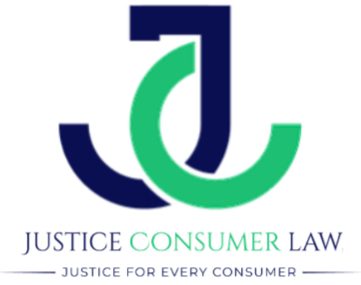Why Credit Litigation Matters
Credit reports influence every aspect of your financial life—from loan approvals to job applications. But what happens when errors appear on your report, or a creditor falsely accuses you of a debt? That’s where credit litigation comes into play. Justice Consumer Law is here to help you protect your rights and correct inaccuracies before they cause lasting harm.
What Is Credit Litigation?
It is the legal process of resolving disputes related to credit reports, debt collection, or financial agreements. Legal intervention is typically required to protect a consumer’s rights when standard dispute channels fail to correct errors or unfair practices.
Legal Action Around Credit Disputes
When a consumer disputes their credit report or debt and cannot resolve it through standard channels, they initiate credit litigation. It often involves:
- Incorrect credit reporting
- Aggressive or illegal debt collection
- Identity theft
- Misrepresentation of loan or credit terms
These disputes can lead to lawsuits, particularly if credit bureaus or debt collectors fail to correct errors.
Common Credit Disputes Consumers Face
1. Credit Report Errors
Small mistakes when entering data, like typing in the wrong address or account status, can have big effects. Even on-time payments might show as late if your creditor reports inaccurately.
2. Identity Theft
Fraudulent accounts or charges created by identity thieves can tank your credit score and lead to legal headaches.
3. Debt Collection Disputes
Some agencies may attempt to collect on debts that are inaccurate, have already been paid, or are past the statute of limitations.

Legal Rights That Protect You
FCRA (Fair Credit Reporting Act)
This federal law gives you the right to:
- Dispute inaccurate info on your credit report
- Expect corrections within 30 days
- Receive a copy of your report upon request
FDCPA (Fair Debt Collection Practices Act)
This protects you from:
- Harassment or threats by collectors
- Misrepresentation of owed amounts
- Collection of expired debts
TILA (Truth in Lending Act)
TILA ensures that credit terms are disclosed clearly, protecting consumers from hidden fees or interest rates.
How to Resolve Credit Disputes Effectively
Step 1: Review Your Credit Reports
Start by requesting reports from the three major credit bureaus—Equifax, Experian, and TransUnion. Under federal law, you are entitled to one free report per year at AnnualCreditReport.com.
Step 2: Gather Documentation
Account statements, payment confirmations, emails from creditors, and police reports (in cases of identity theft) will all be required as supporting evidence.
Step 3: File a Dispute with the Bureau
Submit a written dispute to the credit bureau. Include:
- Description of the error
- Copies (not originals) of evidence
- Clear request for correction or removal
Bureaus typically investigate within 30 days.
Step 4: Escalate with Legal Action
If your dispute isn’t resolved or results in an unsatisfactory outcome, that’s where Justice Consumer Law steps in. We take over communication, file necessary lawsuits, and defend your rights in court when required.
How Justice Consumer Law Helps You
Personalized Credit Litigation Services
Every case is unique. That’s why we create custom legal strategies for each client, focused on:
- Credit repair
- Stopping illegal collections
- Suing credit bureaus or creditors when warranted
We Handle the Paperwork & Legal Pressure
From demand letters to court filings, our team manages all legal steps on your behalf, so you don’t have to deal with aggressive collectors or confusing jargon.
Transparent Communication
You’ll never be left in the dark. Our secure client portal ensures consistent updates and direct access to your case progress.
Preventing Future Credit Problems
Monitor Your Credit Regularly
Use tools like Credit Karma, Identity Guard, or your bank’s credit alert system to catch errors before they grow.
Secure Personal Data
Avoid phishing scams and shred sensitive mail. Use two-factor authentication on financial accounts.
Stay Proactive with Creditors
If you expect to miss a payment, talk to the creditor first. Communication can prevent accounts from being sent to collections.
Why Choose Justice Consumer Law?
Justice Consumer Law is not just a law firm—we are your financial advocates. Based on the belief that every consumer deserves a clean, fair credit record, we provide:
- Litigation Expertise: Focused on credit disputes, FCRA violations, and unlawful collections.
- No Hidden Fees: Transparent pricing with no surprises.
- Results-Oriented Approach: We aim to restore your credit and peace of mind.
Ready to Take Control of Your Credit?
Errors and unfair collections can hold you back, so do not let them. Let Justice Consumer Law fight for your rights and restore your financial confidence. Schedule your free consultation today and start the path to a clean credit report.
FAQs
How long does credit litigation take?
Timelines vary. Disputes can be resolved in 30–90 days, but litigation may take several months, depending on the complexity of the case.
Can I sue for emotional distress from credit reporting errors?
Yes, under certain conditions. If an incorrect report causes substantial harm (like loan denial or job loss), you may be eligible for damages.
What if a debt is too old?
Debts outside the statute of limitations cannot legally be sued over. Collectors may still contact you, but they cannot take legal action.
What are the benefits and risks of credit litigation?
